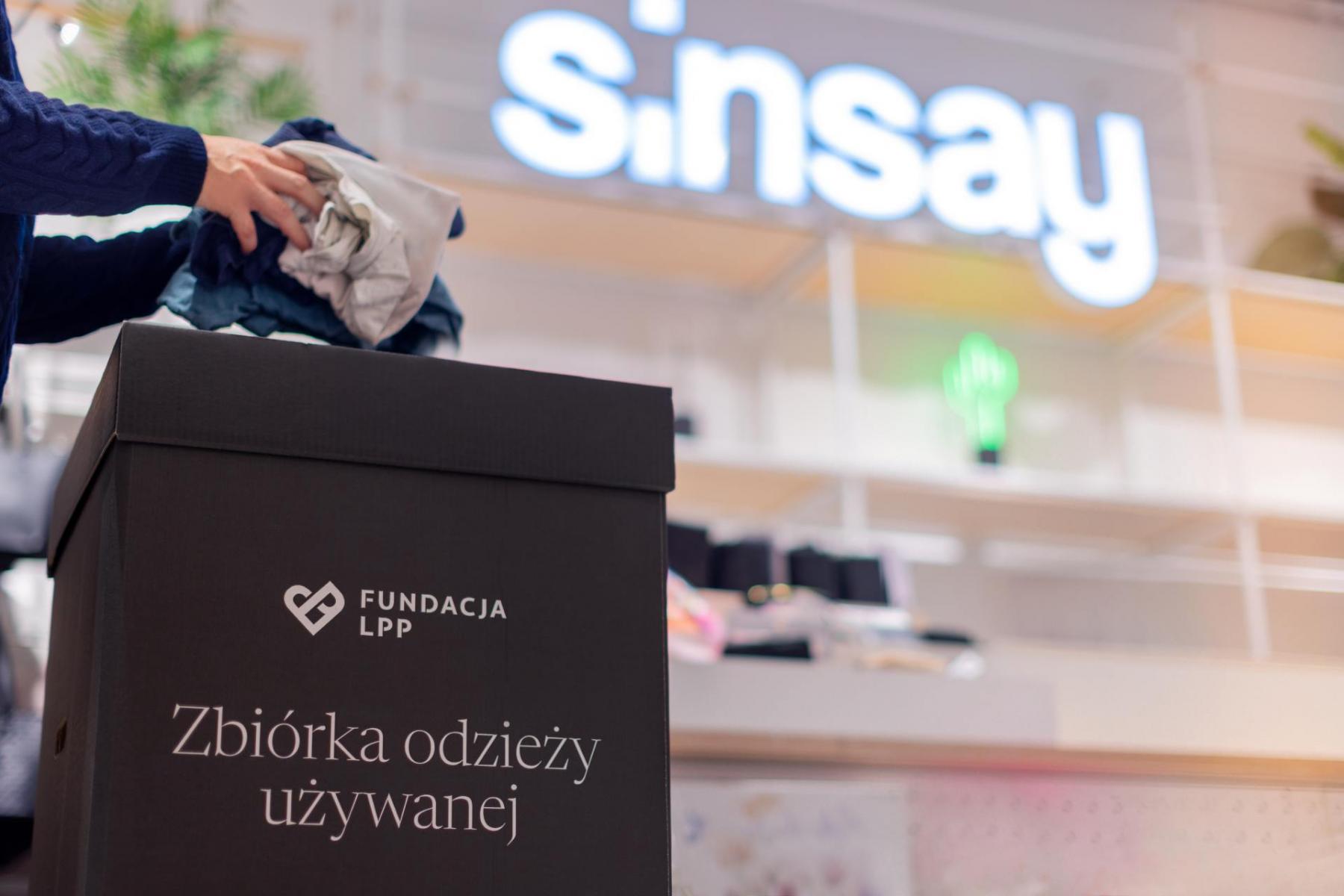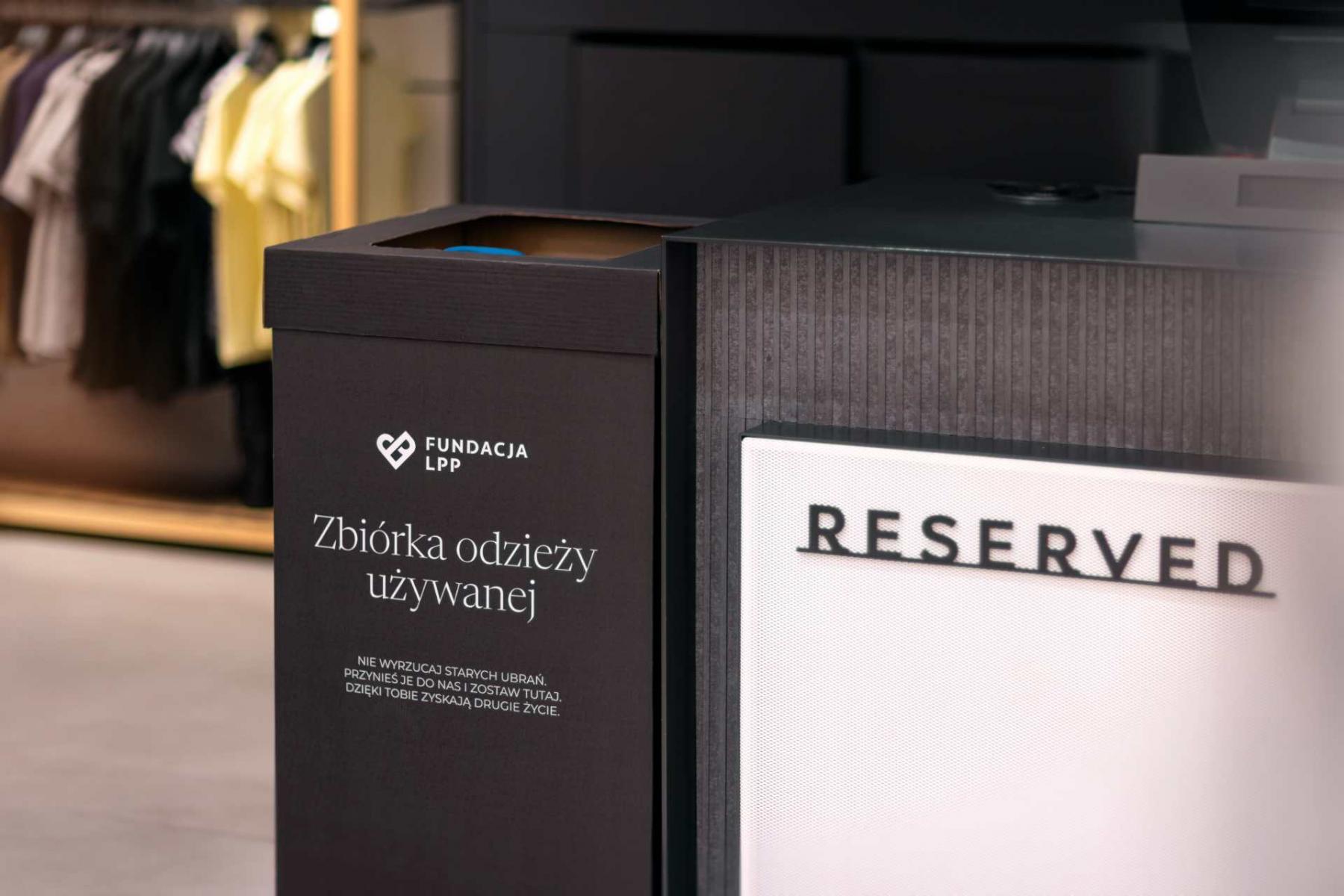LPP introduces clothing collection containers at all stores in response to new textile regulations
As of early 2025, LPP has introduced specially designated containers for used clothing across its entire network of stores in Poland. The initiative follows new EU regulations requiring the separate collection of textiles, which came into effect on 1 January 2025. The aim is to reduce the amount of clothing and footwear ending up in mixed waste, enabling more efficient reuse and recycling.
LPP began its clothing collection initiative in 2018, initially in a limited number of Reserved stores. Due to positive customer response, the programme gradually expanded to include House and Mohito stores, and by early 2023, was implemented in all LPP brand stores in Poland. In 2024, the project extended to several international markets.
To support the regulation and improve collection accessibility, LPP now offers customers the opportunity to donate unwanted clothing to clearly marked cardboard containers placed in over 1,000 stores of its brands, including Sinsay, Reserved, House, Cropp, and Mohito. The only exception is around 35 smaller-format stores (under 300 m²), where clothing can still be handed directly to staff at the checkout.
According to Ewa Janczukowicz-Cichosz, LPP’s sustainable development expert, the goal is to make textile recycling more accessible, particularly in smaller towns where other collection points may be limited.
The donated clothing is sent to the Social Integration Centre in Gdynia, where it is sorted under the “Sortownia” project. Items in good condition are distributed through the Society of St. Brother Albert to people in need. Clothes that cannot be reused are passed to Wtórpol, a company that processes them into secondary raw materials used in the production of cleaning cloths and alternative fuels.
Monika Lipnicka, an expert at Wtórpol, explained that sorting facilities play a key role in textile circularity, allowing used garments to be repurposed in different ways and extending their life cycle.
Beyond Poland, LPP has also implemented the clothing collection programme in the Czech Republic, Slovakia, the United Kingdom, and, as of January 2025, in Lithuania. Expansion to Bulgaria is planned in the coming months. In each country, LPP collaborates with local organisations that apply circular economy principles and technologies. One example includes upcycling textile waste into granules used to produce household items.
According to LPP, 96% of the collected clothing is reused, either as support for those in need or as material for new products. With the programme’s continued development, the company aims to make responsible clothing disposal easier and more widely available.










